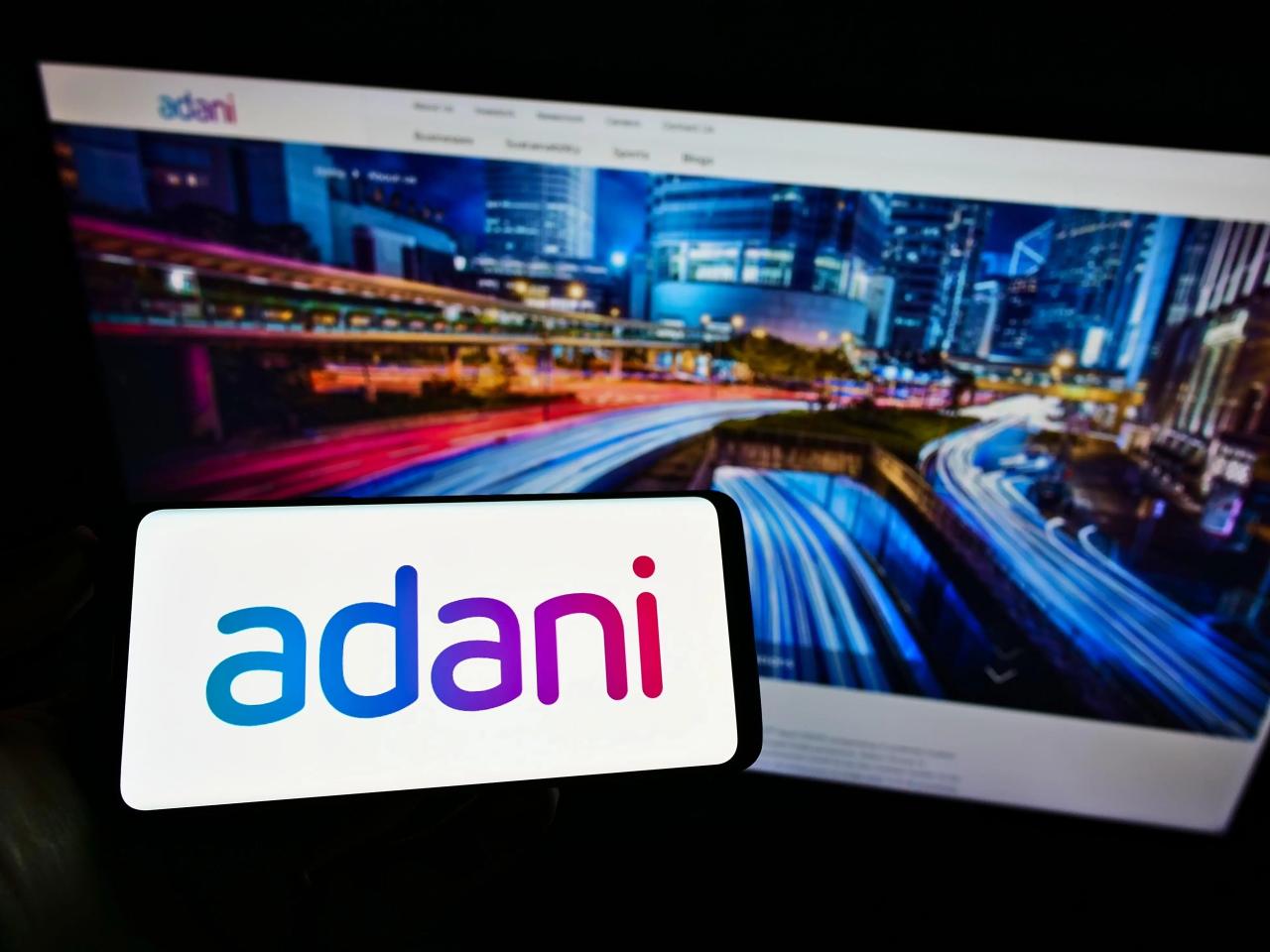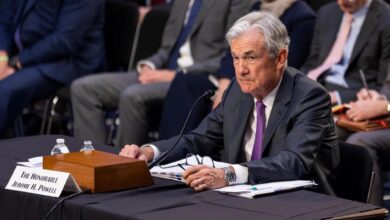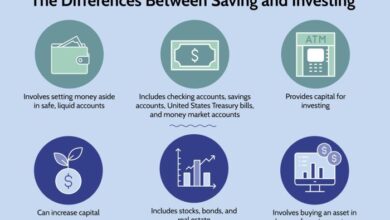
Adani Group Denies Opaque Funds Claims
Adani Group dismisses claims of opaque funds usage for stock investments, a statement that has sparked a wave of scrutiny and debate in the financial world. The allegations, which have been circulating for several weeks, claim that the group used undisclosed sources to finance its stock purchases.
The Adani Group has vehemently denied these claims, asserting that all investments have been made through legitimate channels. This controversy has sent shockwaves through the stock market, impacting Adani Group’s share prices and raising concerns about the group’s financial transparency.
The allegations center around the origins of funds used to purchase shares in Adani Group companies. Critics have raised questions about the transparency of these funds, suggesting that they may have been sourced from offshore entities or through undisclosed transactions.
The Adani Group has maintained that all investments are fully compliant with regulatory requirements and that the group’s financial practices are above reproach. However, the allegations have prompted regulatory investigations and have cast a shadow over the group’s reputation.
Adani Group’s Response

The Adani Group has vehemently denied the allegations of opaque funds usage for stock investments, calling them “baseless” and “malicious.” The group has released multiple statements, reiterating its commitment to transparency and adherence to all applicable laws and regulations.
Specific Denials and Clarifications
The Adani Group has provided specific clarifications and denials regarding the allegations. These include:
- Denial of Offshore Funds:The group has denied using any offshore funds for stock investments. They have asserted that all investments are made through legitimate and transparent channels, with full disclosure to regulatory authorities.
- Transparency in Shareholding:The group has emphasized the transparency of its shareholding structure, stating that all relevant information is publicly available. They have also clarified that any shareholding changes are made through legal and transparent processes.
- Compliance with Regulations:The Adani Group has consistently maintained its adherence to all applicable laws and regulations in all its business operations. They have highlighted their commitment to transparency and accountability in all financial dealings.
Overall Stance
The Adani Group has adopted a firm stance against the allegations, maintaining that they are unfounded and driven by malicious intentions. The group has reiterated its commitment to ethical business practices and transparency, and has pledged to fully cooperate with any regulatory inquiries.
They have also emphasized their confidence in the strength of their business model and the long-term sustainability of their operations.
Allegations of Opaque Funds Usage
The Adani Group has faced significant scrutiny regarding the source of funds used for its stock investments. These allegations have raised concerns about the transparency and legitimacy of the group’s financial practices.
Concerns Regarding Transparency
The primary concern regarding the source of funds used for stock investments is the lack of clarity about their origin. Critics have pointed to the involvement of offshore entities and shell companies in the group’s financial dealings. These entities, often located in tax havens, can obscure the true source of funds and make it difficult to track the flow of money.
The Adani Group has vehemently denied allegations of using opaque funds for stock investments, emphasizing their commitment to transparency. Meanwhile, the US dollar has remained steady in the forex market, buoyed by expectations of further Fed rate hikes and optimism surrounding the debt ceiling negotiations.
This stability in the dollar, as reported in this article , could potentially impact global markets and investor sentiment, including the Adani Group’s ongoing efforts to regain investor confidence.
Potential Implications of Opaque Funds
The use of opaque funds for stock investments can have several implications. One major concern is the potential for market manipulation. If funds are used to artificially inflate stock prices, it can give the impression of strong market demand, leading to investors making decisions based on false information.
This can result in market instability and losses for unsuspecting investors. Another implication is the potential for regulatory breaches. Financial regulators often require transparency regarding the source of funds used for investments. If opaque funds are used, it can raise red flags and trigger investigations, potentially leading to penalties and sanctions.
Impact on Stock Market
The allegations against the Adani Group have had a significant impact on the company’s stock prices, leading to a substantial decline in its market value. The stock performance before and after the allegations surfaced highlights the severity of the situation.
The allegations have raised concerns about the company’s financial health and its ability to sustain its growth trajectory.
Stock Performance Before and After Allegations
The allegations surfaced in late January 2023, and since then, the Adani Group’s stock prices have experienced a sharp decline.
The Adani Group has been in the news recently, with allegations of opaque funds usage for stock investments. While the company denies these claims, it’s interesting to note that Gen Z investors, who are known for their risk appetite and focus on growth, are increasingly drawn to tech giants like Nvidia and Tesla, as well as homebuilding companies like Lennar.
This trend, highlighted in a recent article , suggests that young investors are prioritizing potential for rapid growth over traditional, established companies, perhaps even prompting them to consider alternative investment strategies. It remains to be seen how the Adani Group will address these allegations and whether it will impact the confidence of investors, particularly younger ones.
- The flagship company, Adani Enterprises, saw its stock price plummet by over 60% from its peak in January 2023 to February 2023.
- Other Adani Group companies, such as Adani Ports and Special Economic Zone, Adani Green Energy, and Adani Power, also experienced significant drops in their stock prices.
The stock performance before the allegations was characterized by steady growth, driven by the company’s expansion into various sectors, including energy, infrastructure, and logistics. However, the allegations have shaken investor confidence, leading to a sell-off in the company’s shares.
Potential Long-Term Effects on Market Value
The long-term impact of the allegations on the Adani Group’s market value is still uncertain. However, the following factors could influence the company’s future performance:
- The outcome of the ongoing investigations into the allegations. If the allegations are substantiated, the company could face significant financial and legal penalties.
- The extent to which investor confidence is restored. The allegations have damaged the company’s reputation, and it will take time to rebuild trust with investors.
- The company’s ability to maintain its growth trajectory. The allegations have raised concerns about the company’s financial health, and it will need to demonstrate its ability to continue growing in order to regain investor confidence.
If the Adani Group is able to address the allegations and restore investor confidence, it could potentially recover some of its lost market value. However, if the allegations are substantiated and the company faces significant financial and legal penalties, its market value could continue to decline.
Regulatory Investigations
Following the allegations of opaque funds usage, several regulatory bodies have initiated investigations into the Adani Group. These investigations are crucial to determine the validity of the allegations and ensure transparency in the financial dealings of the conglomerate.
Investigations by Indian Regulatory Bodies
The Securities and Exchange Board of India (SEBI) is conducting a comprehensive investigation into the Adani Group. The scope of this investigation encompasses the allegations of stock manipulation, insider trading, and violation of disclosure norms. SEBI is examining the transactions involving the Adani Group’s listed companies, particularly those involving offshore entities.
The investigation aims to ascertain if any of the transactions violated the regulations governing the Indian stock market.
Potential Consequences for the Adani Group
If the investigations reveal any wrongdoing, the Adani Group could face significant consequences. These consequences could include:
- Penalties:SEBI has the authority to impose hefty penalties on companies found guilty of violating market regulations. These penalties could be financial in nature, impacting the Adani Group’s financial performance.
- Legal Action:The findings of the investigations could lead to legal action, potentially involving criminal charges against individuals or entities within the Adani Group.
- Reputational Damage:The allegations and the ongoing investigations have already damaged the Adani Group’s reputation. If wrongdoing is found, the reputational damage could be further amplified, potentially impacting investor confidence and future business opportunities.
- Regulatory Restrictions:Depending on the nature of the violations, the Adani Group could face regulatory restrictions, such as limitations on their ability to raise capital or engage in certain business activities.
Financial Practices of Adani Group
The Adani Group, a conglomerate headquartered in Ahmedabad, India, is one of the largest and most diversified business groups in the country. The group’s operations span various sectors, including ports, power generation, mining, and infrastructure. The Adani Group’s financial practices have been under scrutiny in recent years, particularly following allegations of opaque funds usage for stock investments.
This section delves into the financial structure and operations of the Adani Group, analyzing its investment strategies and financial performance in recent years. It further compares the group’s financial practices to industry standards and best practices.
Financial Structure and Operations
The Adani Group is structured as a holding company with multiple subsidiaries operating across different sectors. The group’s financial structure is characterized by a complex web of subsidiaries, with significant cross-holdings and inter-company transactions. This structure, while facilitating the group’s expansion and diversification, also raises concerns about transparency and potential conflicts of interest.
The group’s financial operations involve a combination of debt and equity financing. It has been known to utilize aggressive leverage strategies, taking on significant debt to fund its growth.
Investment Strategies
The Adani Group has pursued a growth-oriented investment strategy, primarily focused on expanding its presence in infrastructure and energy sectors. The group’s investment decisions are often driven by its founder and chairman, Gautam Adani, who has a strong vision for the group’s growth.
The Adani Group has vehemently denied allegations of using opaque funds for stock investments, emphasizing their commitment to transparency. While this news has made headlines, the broader stock market saw limited movement as investors focused on analyzing economic data and digesting the recent leadership changes at GameStop, as reported by The Venom Blog.
The Adani Group’s response, however, will likely be closely scrutinized by investors and regulators alike.
In recent years, the Adani Group has made significant investments in renewable energy, green hydrogen, and data centers. These investments align with the group’s commitment to sustainability and digital transformation.
Financial Performance
The Adani Group has achieved significant financial growth in recent years, with its revenues and profits increasing consistently. This growth has been driven by the group’s expansion into new sectors, coupled with its aggressive investment strategy. However, the group’s financial performance has also been subject to scrutiny, with concerns raised about its debt levels and the sustainability of its growth trajectory.
Comparison to Industry Standards
The Adani Group’s financial practices have been compared to industry standards and best practices. Some analysts have raised concerns about the group’s high debt levels, which are significantly higher than those of its peers in the Indian market. The group’s reliance on related-party transactions has also been questioned, with concerns about potential conflicts of interest and lack of transparency.
Regulatory Investigations
The Adani Group has faced multiple regulatory investigations in recent years, primarily related to allegations of accounting irregularities and market manipulation. These investigations have highlighted the need for increased scrutiny and accountability within the group’s financial operations. The regulatory scrutiny has had a significant impact on the group’s share prices and its overall reputation.
Public Perception and Trust: Adani Group Dismisses Claims Of Opaque Funds Usage For Stock Investments

The allegations of opaque funds usage and stock manipulation have cast a long shadow over the Adani Group, significantly impacting public perception and eroding trust in the conglomerate. These accusations have raised serious concerns about the group’s corporate governance practices, financial transparency, and overall integrity.
Impact on Public Perception, Adani group dismisses claims of opaque funds usage for stock investments
The allegations have sparked widespread skepticism and doubt among investors, stakeholders, and the general public. Many are questioning the group’s business practices and its commitment to ethical conduct. The allegations have also led to a decline in investor confidence, resulting in significant stock market volatility and losses for investors who held Adani Group shares.
Consequences for Reputation and Brand Image
The reputational damage caused by the allegations is substantial. The Adani Group, once seen as a symbol of Indian business success, now faces a serious challenge in rebuilding its brand image. The negative publicity has tarnished the group’s reputation, making it difficult to attract new investors, secure financing, and maintain existing business relationships.
Rebuilding Trust with Stakeholders
To rebuild trust with stakeholders, the Adani Group needs to take decisive and transparent actions. This includes:
- Full Transparency and Disclosure:The group must provide complete and transparent information about its financial dealings, including the source of its funds and its stock investment strategies. This should be done through detailed disclosures and independent audits.
- Strengthening Corporate Governance:The group needs to implement robust corporate governance practices to ensure accountability, transparency, and ethical decision-making. This could involve appointing independent directors, strengthening internal controls, and establishing clear conflict of interest policies.
- Engaging with Stakeholders:Open and honest communication with investors, regulators, and the public is crucial. The group should actively engage with stakeholders to address their concerns, provide clear explanations, and demonstrate its commitment to ethical conduct.
- Independent Investigations:The group should cooperate fully with any regulatory investigations and allow for independent audits to ensure the allegations are thoroughly investigated. This will help restore confidence in the group’s financial practices and demonstrate its commitment to transparency.
The Adani Group’s ability to rebuild trust will depend on its willingness to address the allegations head-on, take concrete steps to improve its corporate governance, and demonstrate its commitment to transparency and ethical conduct. Failure to do so could have lasting consequences for the group’s reputation and its future success.
Potential Implications for Investors

The recent allegations of opaque funds usage by the Adani Group have sent shockwaves through the Indian stock market and raised concerns among investors. The situation presents both risks and opportunities for those invested in Adani Group companies. Understanding these implications is crucial for investors to make informed decisions and manage their portfolios effectively.
Impact on Investor Confidence
The allegations have significantly eroded investor confidence in the Adani Group. The allegations have led to a sharp decline in the share prices of Adani Group companies, resulting in substantial losses for investors. The market reaction reflects the heightened risk perception associated with the group’s financial practices and governance.
The allegations have also raised concerns about the transparency and accountability of the group’s operations, further undermining investor trust.
Potential Risks for Investors
- Further Share Price Decline:The allegations could trigger further declines in Adani Group share prices, leading to significant financial losses for investors. As the investigations unfold, more information may come to light, potentially exacerbating the situation.
- Liquidity Concerns:The market turmoil and investor sell-off could create liquidity challenges for Adani Group companies, making it difficult for them to raise capital or meet their financial obligations. This could further impact the share prices and expose investors to additional risks.
- Regulatory Scrutiny:The regulatory investigations into the Adani Group’s financial practices could result in fines, penalties, or other sanctions, potentially impacting the group’s future profitability and investor returns.
- Reputational Damage:The negative publicity surrounding the allegations could damage the reputation of the Adani Group, affecting its ability to attract investors, partners, and customers. This could have long-term consequences for the group’s business operations and growth prospects.
Potential Opportunities for Investors
While the allegations present significant risks, there may also be opportunities for investors who can navigate the situation strategically.
- Value Investing:The sharp decline in share prices could create opportunities for value investors who believe in the long-term potential of Adani Group companies. If the investigations clear the group of wrongdoing, the share prices could rebound, offering significant gains.
- Diversification:Investors can mitigate their risk by diversifying their portfolios across various asset classes and sectors, reducing their exposure to the Adani Group.
- Active Monitoring:Closely monitoring the situation, keeping abreast of regulatory developments and market sentiment, can help investors make informed decisions about their investments in Adani Group companies.
Guidance for Investors
- Conduct Thorough Due Diligence:Before investing in any Adani Group company, investors should conduct thorough due diligence, examining the company’s financial statements, regulatory filings, and other relevant information. This will help them assess the risks and opportunities associated with the investment.
- Seek Professional Advice:Investors should consult with financial advisors or investment professionals who can provide guidance and support in navigating the complex situation.
- Manage Expectations:Investors should manage their expectations and understand that there is no guarantee of a quick or easy recovery in the share prices of Adani Group companies.
- Be Patient:The situation is likely to unfold over time, and investors should remain patient and avoid making hasty decisions based on short-term market fluctuations.






